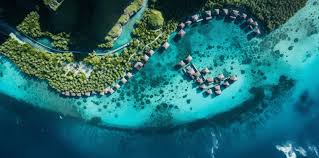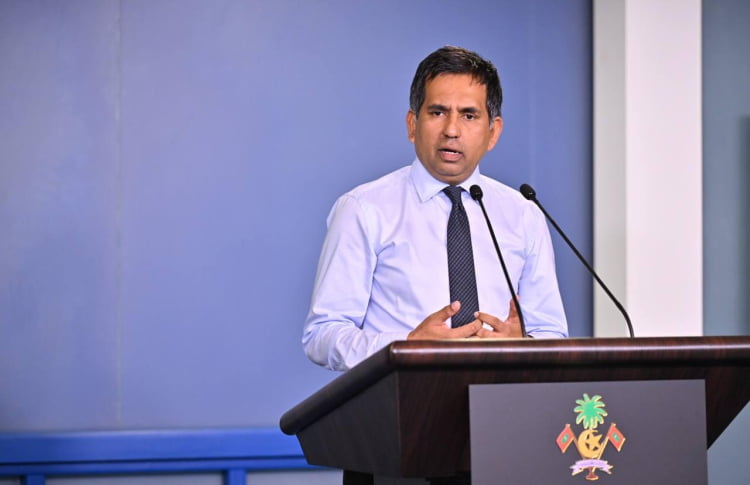
Introduction to Foreign Direct Investments in the Maldives
The Maldives, known for its picturesque atolls and vibrant marine life, has increasingly become a focal point for foreign direct investments (FDIs). The Foreign Investment Act serves as the cornerstone of the regulatory framework governing these investments. Enacted to streamline and manage the influx of foreign capital, the Act plays a pivotal role in shaping the Maldivian economy.
FDIs are substantial to the economic fabric of the Maldives, contributing significantly to sectors such as tourism, real estate, and infrastructure. The Foreign Investment Act outlines the requirements and conditions under which foreign entities can enter and operate within the Maldivian market, aiming to create a balanced and conducive environment for both investors and the local economy.
Historically, the investment landscape in the Maldives has evolved considerably. Initially, the nation relied heavily on traditional industries like fishing and agriculture. However, with the advent of global travel and a surge in tourism, the need for diversified investment avenues became apparent. This transition necessitated a robust legal framework to attract and regulate foreign investments effectively.
The general framework for FDIs under the Foreign Investment Act includes a structured process for obtaining the necessary permits and licenses. It ensures transparency and provides guidelines on the types of permissible investments, equity requirements, and operational guidelines. This regulatory environment aims to foster sustainable economic growth while safeguarding the interests of the local population.
By understanding the historical context and the role of the Foreign Investment Act, stakeholders can better appreciate the strategic importance of FDIs in the Maldives. The Act not only facilitates the entry of foreign capital but also ensures that such investments contribute positively to the nation’s development goals.
Sector-Specific Requirements and Policies
The Maldives’ foreign direct investment (FDI) policy delineates specific requirements that are pivotal for potential investors to understand. These requirements vary across different sectors and play a crucial role in shaping the investment landscape. A key aspect of the policy is the regulation of foreign shareholding percentages which can significantly influence the structure of foreign investments within the nation.
For instance, in certain sectors, the policy allows for 100% foreign ownership, providing a lucrative opportunity for foreign investors. The tourism sector, which is the backbone of the Maldivian economy, is a prominent example. Foreign entities are permitted to fully own resorts and hotels, provided they make a substantial initial investment, often amounting to several millions of dollars. This liberal approach has led to significant foreign participation and growth in the tourism industry.
Conversely, other sectors necessitate joint ventures with Maldivian partners. The fisheries sector, integral to the Maldives’ traditional economy, typically requires foreign investors to collaborate with local businesses. This joint venture model aims to balance foreign investment with local participation, thereby ensuring that the benefits of foreign capital and expertise are shared with the local populace.
The real estate sector also presents a mixed scenario. While foreign investors can own and develop properties, there are stringent regulations concerning land ownership and development rights. Foreign entities often need to navigate a complex regulatory environment, including securing long-term leases rather than outright ownership of land. This sector, however, continues to attract significant interest due to the Maldives’ strategic location and growing demand for luxury real estate.
Minimum initial investment requirements also vary across sectors, designed to ensure that only serious investors with adequate financial backing enter the market. These thresholds help maintain a stable and competitive investment climate, fostering sustainable economic growth. Overall, understanding these sector-specific requirements and policies is crucial for any foreign investor looking to navigate the Maldivian FDI landscape effectively.
Opportunities for 100% Ownership vs. Joint Ventures
Under the Foreign Investment Act in the Maldives, foreign investors are presented with two primary avenues for investment: 100% ownership or joint ventures with local partners. Each option comes with its own set of opportunities and challenges, thereby necessitating a careful assessment by prospective investors.
Certain sectors in the Maldives, such as tourism, education, and high-end real estate, permit 100% foreign ownership. This pathway allows investors full control over their operations, enabling them to implement their business strategies without local interference. For instance, luxury resort developments often attract full foreign ownership due to the high level of expertise and capital required. An example of successful 100% foreign investment is the Soneva Group’s resorts, which have flourished due to complete operational autonomy and significant international expertise in luxury hospitality.
Conversely, sectors like fisheries and agriculture typically require foreign investors to engage in joint ventures with local entities. These collaborations can provide valuable local insights and facilitate smoother regulatory navigation. For example, a joint venture in the fisheries sector can help foreign investors understand local market nuances and government regulations more effectively. A notable case is the partnership between Maldives Industrial Fisheries Company and Thai Union Group, which has been beneficial in leveraging local fishing knowledge and international market access.
Choosing between 100% ownership and joint ventures involves strategic considerations. Investors must weigh their need for control against the benefits of local partnerships. Full ownership might be suitable for sectors where global expertise is crucial, while joint ventures may be advantageous in areas where local knowledge and relationships are integral to success. Additionally, joint ventures can mitigate risks associated with unfamiliar markets by sharing responsibilities and resources with local partners.
Ultimately, the decision between 100% ownership and joint ventures should align with the investor’s long-term goals, risk tolerance, and the specific requirements of their target sector. Both approaches can yield substantial returns if navigated thoughtfully and strategically.
Navigating the Investment Process
Embarking on a foreign direct investment (FDI) journey in the Maldives involves a series of meticulously structured steps to ensure compliance with the Foreign Investment Act and other pertinent regulations. Understanding these steps is crucial for a seamless investment experience.
The initial step for any foreign investor is to secure approval from the Ministry of Economic Development. This process begins with the submission of a comprehensive business proposal, detailing the nature and scope of the intended investment. The Ministry evaluates the proposal based on its alignment with national economic priorities and its potential impact on local employment and development.
Once the proposal is approved, the next phase involves the registration of the investment. This includes obtaining necessary business licenses and permits, which can vary depending on the sector of investment. For instance, investments in tourism require specific permits from the Ministry of Tourism, while those in the fisheries sector must comply with regulations set forth by the Ministry of Fisheries and Agriculture.
Compliance with legal and regulatory requirements is a continuous process. Investors must adhere to local labor laws, environmental regulations, and tax obligations. Engaging with local legal advisors can provide invaluable guidance on the intricate legal landscape of the Maldives. These professionals can assist in drafting contracts, navigating regulatory frameworks, and ensuring that all legal requirements are consistently met.
To facilitate a smooth investment experience, foreign investors are encouraged to collaborate with investment consultants who specialize in the Maldivian market. These consultants offer strategic insights, market analysis, and practical advice, helping investors make informed decisions. Additionally, government agencies such as the Ministry of Economic Development and the Maldives Investment Promotion Agency provide resources and support to streamline the investment process.
By following these best practices and leveraging the available resources, foreign investors can effectively navigate the investment process in the Maldives, aligning their ventures with the country’s regulatory framework and economic goals.
View FDI policy
Application form: Pdf







